Arts and Culture
BI and Analytics
Museums
Theatre
Article
Success Stories
666d2032-9aac-44ad-9c8b-3d1c5471dbc7
7 min
https://edge.sitecorecloud.io/tessituraneab9a-tessiturane5642-staging-5396/media/Images/Licensee-Photography/Photos_768x465/National-Museum-Scotland_768x465.jpg?h=465&iar=0&w=768
How National Museums Scotland and Liverpool Everyman got their teams excited about data
Creating a data-driven culture
6/13/2023
7 min
“Having access to data is really powerful.”
Hannah Bishop, the CRM and Ticketing Manager at National Museums Scotland, knows what a difference good data can make. It used to be impossible to review insights across her entire organisation. The group includes four sites: National Museum of Scotland, National Museum of Flight, National Museum of Rural Life and National War Museum.
“As an organisation, having separate systems and people having their own sets of data has been very limiting,” Hannah said. “It’s not allowed us to see ourselves as one team working toward a common goal. It’s been easy to think of income targets as being very separate.”
“As an organisation, having separate systems and people having their own sets of data has been very limiting.”
Breaking down silos
Information silos also made it hard to understand the visitors’ journeys with the museums. It was difficult to track the impact of individual programmes or experiences and measure their effect on building long-term relationships.
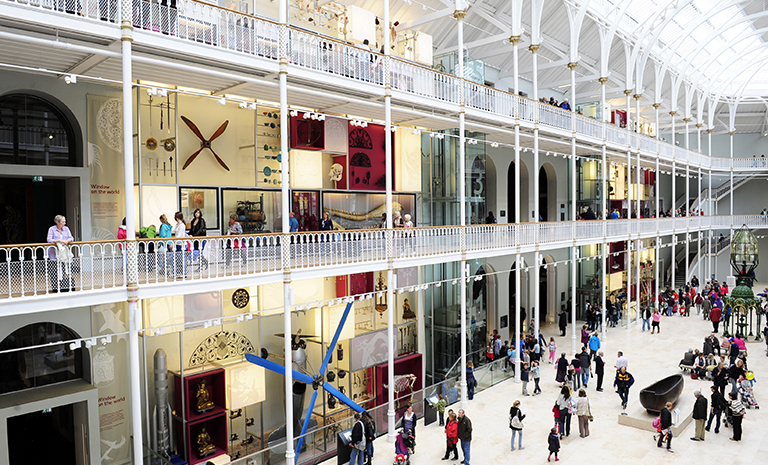
Visitors explore the Grand Gallery at the National Museum of Scotland.
National Museums Scotland adopted Tessitura’s unified, transactional CRM system in September 2022. With Tessitura, they can finally investigate the results of their efforts.
“I’m excited to be able to show the value of an interaction in all ways,” Hannah said. “The way we sign somebody up to receive our newsletter. The way we convert them to buy their first ticket for a paid exhibition or event. Following them through to thinking about a membership or donating. We’re able to understand more — in the round — how people interact with us.”
Focusing engagement
The team at Liverpool Everyman & Playhouse Theatres also uses data from Tessitura to focus their audience engagement plans. The group operates two U.K. theatres, located about a mile apart.
Brendan Douglas, Audience Experience Manager, says the insight he gains “is so much more than just seeing what people have booked what show.”
Brendan said, “We’re able to keep track of people’s interests, what they’re coming to see, any potential issues they might have had. We track if they enjoyed the show, if they enjoyed the front-of-house experience. And, if they didn’t, why?”
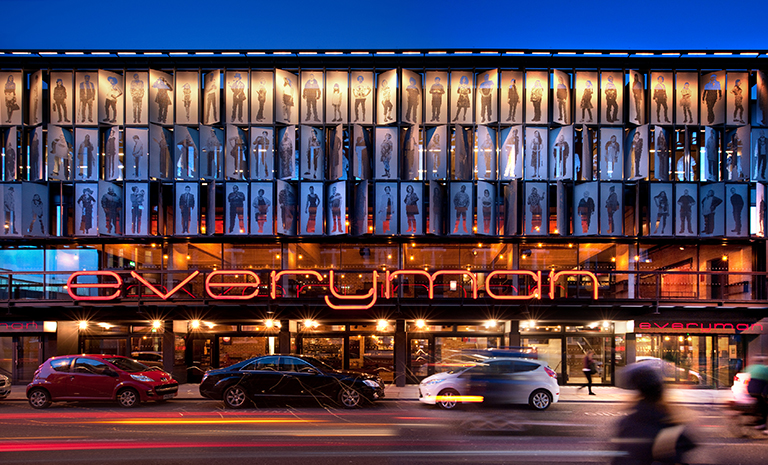
The exterior of the Everyman lit at night. Photo by Philip Vile.
The information they capture helps correct assumptions they may otherwise have held about customers’ programming preferences.
“It’s interesting that we can see crossover for what events people attend,” Brendan said. “Sometimes, people attend events you wouldn’t think had the same demographic. So, there’s always new learning. It’s quite exciting.”
“There’s always new learning. It’s quite exciting.”
Expanding access
Hannah and Brendan cite the ready availability of data in Tessitura as critical to building support for its widespread use.
“It’s been rewarding to see how other people internally have responded to the system and grown excited about particular things,” Hannah said. “Everybody loves being able to see their data presented in such an easy-to-understand way.
“I love data, and I love looking at data. Not everybody does,” Hannah continued. “Tessitura presents data in a friendly way that makes people who aren’t normally excited by the concept of data excited by the things they can learn about our visitors.”
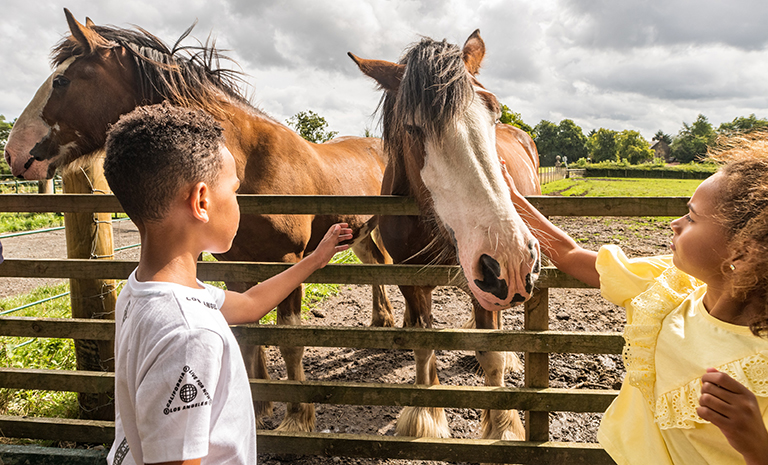
Two young children pet horses at the National Museum of Rural Life in East Kilbride. Photo by Andy Catlin.
Brendan said the value of having good data has changed his team’s perception of their roles. Alongside box office responsibilities, they view themselves as custodians of the theatre’s database.
“There’s a real significance to what we put in Tessitura,” he said. “It gives people a sense of responsibility to maintain that data, to make sure that audiences have the best experience and the organisation is able to thrive.”
Over time, he has seen the rest of the theatre’s staff grow more comfortable seeking out data they need.
“People used to wait on someone to pull a report and send it across and then, sometimes, explain it to them,” Brendan said. “Having the ability to do that for themselves in a way that’s specific to how they want to see the data is really beneficial.”
“Everybody loves being able to see their data presented in such an easy-to-understand way.”
Joining a community
Along with better data, both organisations value the support they receive from Tessitura and from the broader Tessitura community.
“Other people that use Tessitura in their organisations are keen to talk about using it in a really positive way,” Hannah said. “I’ve made good friends from meeting other people managing projects like mine and learning what they’re doing.”
Brendan finds similar encouragement from networking with his Tessitura peers. “To share your experience with like-minded people, with other arts organisations and departments similar to yours — that sense of community is really empowering,” he said.
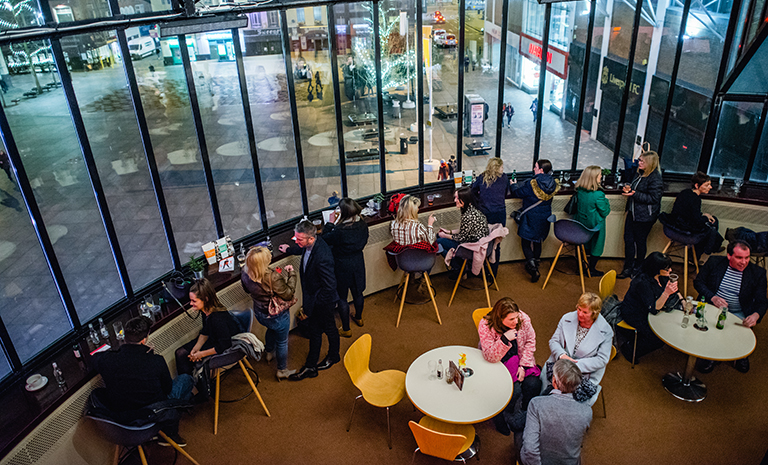
Audience members talk and enjoy concessions in the circular, glass-filled lobby of the Playhouse. Photo by Emma Hillier.
Hannah appreciates the priority Tessitura places on the arts and culture sector.
“As a government-funded organisation, we had to go through a stringent procurement process, which was very thorough,” she said. “The process meant we explored so many different avenues that we felt very sure in our decision with Tessitura. For me, one of the most important things was having a supplier where it didn’t feel like a supplier-client relationship. It felt like a partnership.
“Aside from being able to do everything we needed, the fact that Tessitura is a nonprofit and builds community, that’s a really positive thing,” she continued. “That makes organisations like mine feel we are working together on something, rather than being sold something.”
“The support we get from the Tessitura team, I don’t think we would get that elsewhere.”
Brendan agrees there’s comfort in knowing Tessitura invests in their success.
“The support we get from the Tessitura team, I don’t think we would get that elsewhere,” he said. “I’ve worked with other systems, and that’s not necessarily been present. It’s important to have an organisation that’s on your side, that wants you to thrive. That thinks about what they can do for you to help you grow and help you flourish. And they care about the art form as well, which is fantastic.”
Top photo courtesy of the National Museums of Scotland.
Topics
Arts & Culture
/BI & Analytics
/Museums
/Theatre
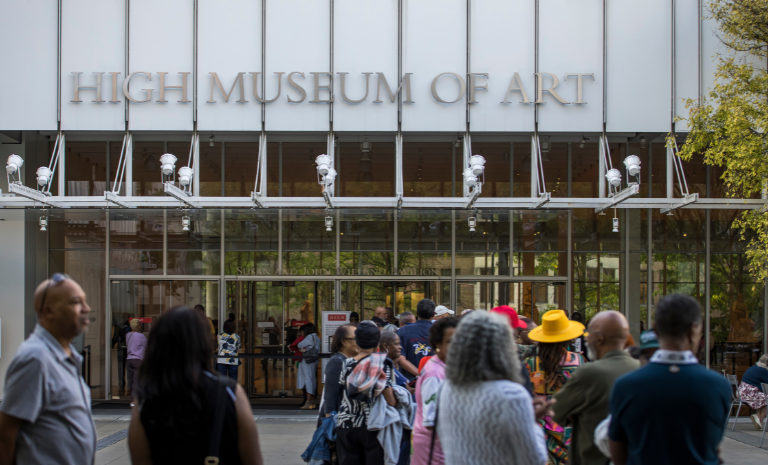
A museum's million-dollar membership initiative
Fundraising / Arts & Culture / Museums / Memberships
How the High Museum’s front-of-house team eclipsed its fundraising goals by 60%
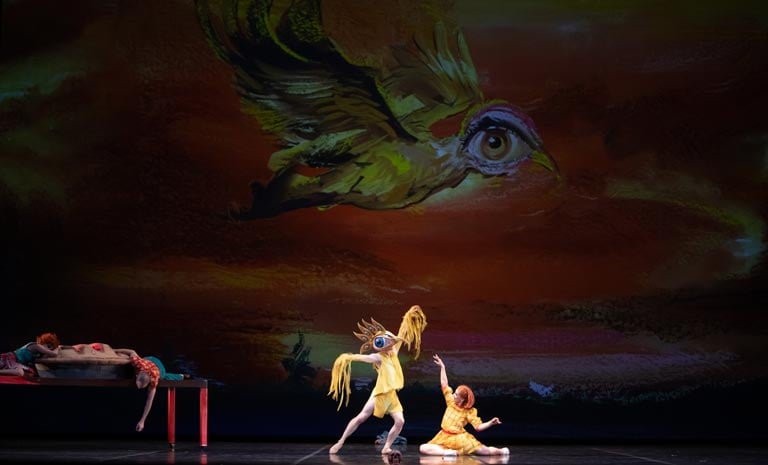
Ballet Austin boosts efficiency and engagement with Tessitura v16
BI & Analytics / Customer Service / Marketing
Forecasting, reporting and segmentation transform data into impact
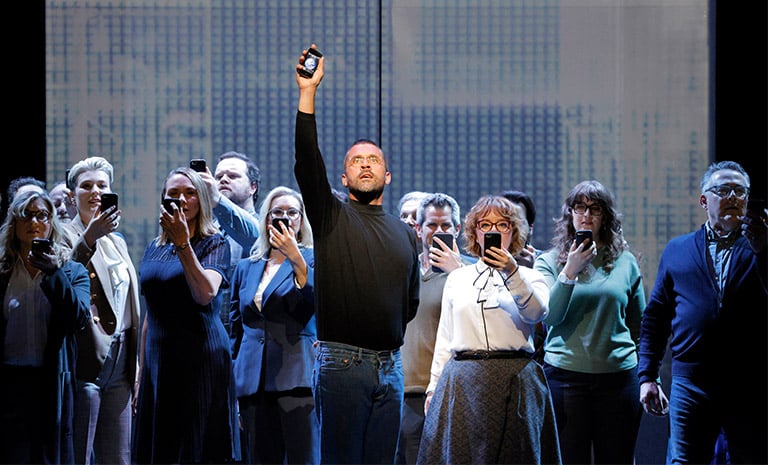
Can AI help find new customers and donors?
Technology / Audience Development / Digital / Arts & Culture
San Francisco Opera and California Academy of Sciences offer two success stories